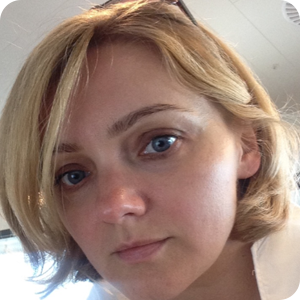With over €550 million in the pipeline, the Austrian Development Agency (ADA) aims to improve living standards in developing nations. The organization operates in seven key regions across Africa, Asia, Central America, and South-East Europe. Working for ADA means contributing with expertise in activities to combat poverty, promote peace, and protect the environment. But landing a job with the organization can be challenging due to the high number of applications and the benefits it offers. However, with the appropriate preparation, skills, and hard work, it is possible to secure a position with the ADA. To help you on your journey, learn a few tips from those who have walked in your shoes.
Key Takeaways:
- The Austrian Development Agency was founded in 2004 as the operational unit of the Austrian Development Cooperation. Its programs and projects aim to improve the standard of living in developing countries by reducing poverty, preserving the environment, and promoting peace and security.
- Expertise in reporting, financial accounting, risk management, law, and project implementation related to various sectors such as education, peacebuilding, and gender equality are essential to get a job with the ADA.
- Working at the ADA offers a secure and interesting workplace with opportunities for professional and personal development. However, administrative processes and adherence to complex procedures represent the main challenges, for example, daily working reports are required.
DevelopmentAid: What major skills and requirements are necessary to start a career with the ADA?

“It depends on the area in which people want to work. For example, the ADA hires people in areas such as reporting and financial accounting, expenditure verification, risk management or law. In these areas, accounting and financial controlling skills, risk management or legal skills (often procurement law, labor law, corporate law, EU law, data protection or similar) are required.
If one prefers to begin their career with ADA by working on one of its projects in the focus countries of the Austrian Development Cooperation (ADC), the following skills are required:
- Agility in at least one of the focus themes of ADA, i.e., education, peacebuilding, human security, human rights, migration and development, the water-energy-food security nexus, private sector and development, environment and climate protection, gender equality.
- Experience in one of the focus countries (an asset or, if one wants to work for or in one of the countries, a requirement), i.e. Palestine, Burkina Faso, Ethiopia, Uganda, Mozambique, Armenia, Georgia, Moldova.
- Language skills: German and English and depending on the specific role languages of one of the focus countries (e.g., as project manager in ADA HQ for Mozambique, Portuguese would be required or at least a strong asset).
- Project management skills.
- In supporting Austrian NGOs or businesses engaging in development cooperation, experience in working with them would be good.
- For field work, the respective language skills as well as the capability and willingness to work in harsh living conditions.
- Capability to work in a multicultural environment and under tight deadlines, gender sensitiveness, integrity, social skills, and teamwork.
- Good written and presentation skills, e.g., for representation in international fora such as the OECD DAC subsidiary bodies or donor meetings.
- The ADA acts not only as a donor but also as an implementing agency (EU delegated cooperation). In this area, project management and reporting skills as well as knowledge of the EU funding criteria and processes are required. Usually, there are no quotas or any other forms of positive discrimination but minorities or persons with disabilities are encouraged to apply. Ambitions to have more females in leading positions are also applicable. These factors do de facto play a role; most project staff have generally been female in leading positions in the past but I think also presently are more filled by men. Contacts and networks within the ADA and BMEIA – “to be known” – can be helpful.”

“Launching a career at the ADA necessitates a broad range of skills and qualifications due to its extensive operations. Essential qualifications include a background in development studies, international relations, or management. Knowledge of sustainable development practices is highly valued, reflecting ADA’s project focus. Language skills are one of the crucial requirements at the ADA. English is essential across all operational units, while proficiency in German is required for those aiming to work at the headquarters. Additionally, familiarity with other languages relevant to ADA’s project regions can be beneficial. And finally, effective communication, teamwork, and adaptation in a multicultural environment are essential for adapting into the ADA community.”

“To have a strong professional expertise in one or several topics and be ready to share this at international level.”
DevelopmentAid: What are the challenges to be faced when applying for a position at the ADA?

“One must complete an online technical form, attach a CV, and cover letter as the first “hurdle” to apply; the form is not super complicated but might sometimes prevent some candidates from applying. If the profile is interesting to the ADA, a committee of two to three people (sometimes more, e.g., for heads of coordination offices) usually conducts guided interviews asking questions about the relevant experiences, skills, and also typical HR questions. It is thus a two-step procedure after which candidates are usually selected. The interviews can of course be a bigger or lesser challenge depending on the interviewees and the interviewer. No specific other challenges are known to me. Vacancies are usually published on the ADA’s website. It happens, however, that positions are filled internally first.”

“Applying for a position at the ADA involves several stages that can seem challenging for candidates. The process begins with a highly competitive shortlisting phase due to the large number of skillful applicants. Subsequently, candidates must successfully complete position-specific written tests. The final stage involves an interview with a selection committee. Each of these steps is time-consuming, requiring thorough preparation. The candidate will acknowledge that the whole process can require sustained motivation and resilience.”

“Due to the high competition, the biggest challenge is to be spotted and selected for a position. The elaboration of a targeted CV and resume could be the direct way to overcome the challenge.”
DevelopmentAid: How do you prepare for an interview at the ADA?

“Preparations depend on the specific position. In any case, they should involve:
- Be prepared to answer specific questions related to the specific position, e.g., if the position the ADA is looking to fill is a gender advisor, one must demonstrate knowledge about international standards in this area or what gender mainstreaming is and how this could be done, etc. If the position is for a project manager for usually two to three countries, knowledge about what the ADA is doing in these countries and about the countries would be good.
- Be prepared for questions related to your CV, experiences particularly those aspects relevant to the position. Often candidates must begin by telling something about themselves, their background etc.
- Why the ADA? Why this position? Motivation.
- Typical HR questions: What are your strengths and weaknesses for this position? What difficult situations have you been in… and how did you solve the problem etc.
- Case examples: You are monitoring projects in Burkina Faso. Your driver is stopped by the police who asks for some money to enable you to pass. How do you react?.”

“If a candidate wants to be well prepared for an ADA interview, they should begin by conducting comprehensive research about what the organization stands for and any information that can be found about it publicly. It would also help tremendously if the individual networked with experts who have previously worked closely with the ADA. It is important for a candidate to read the job announcement carefully and contemplate on how he or she can perform the stated duties. Lastly, an applicant must show that he or she has the abilities to work in a multicultural setting by presenting his or her adaptability and teamwork skills in action.”

“When preparing for an interview you have to read the TORs once more and review your own experience and which you are most proud of and identify the strongest personal traits that might be useful in working in a multicultural team.”
DevelopmentAid: What are some mistakes that young professionals make when applying for a position at the ADA?

“Not being prepared for the interview – this is something you feel immediately; arriving too late or being inappropriately dressed (business/business casual) to the interview; spelling mistakes in the CV or cover letter; dishonesty in the CV (e.g., language skills).”

“My observations are that when applying for a position at the ADA, many applicants do not read the requirements of the job thoroughly and this causes them to be unprepared for the written tests and interview. By going through the job description carefully, these individuals will be able to match their application letters and answers adequately thus improving their chances of being hired. Additionally, engaging actively during interviews by asking insightful questions can demonstrate interest and initiative, further enhancing an applicant’s prospects.”

“The first mistake is not to apply to the ADA. The second is to apply for any relevant position without knowing what added value you as a professional might bring to the position.”
DevelopmentAid: What are the main challenges and benefits of working for the ADA?

“It is an interesting and secure workplace once you are in (usually, after a probationary period of one to three months, permanent contracts are offered, if no significant mistakes are made and the superior is satisfied). The work environment (the people) is usually pleasant, although tensions arise as in every other institution. Salaries are ok and comparable to similar employers but less than in the private sector and one won’t become rich. The ADA offers additional benefits such as support for public transport or favorable fitness club terms or additional support for childcare. Working times are ok (10-14h is core time, the rest can be flexibly managed; weekly hours: 38h if full time). Administrative processes within the ADA can sometimes be a burden, there is a quite pronounced focus on financial controlling and accounting and compliance with sometimes unnecessary complicated procedures, which is good of course, but sometimes might/appears to be over-emphasized. The ADA works with a time recording system that requires completion (including what has been done) each day which can also be annoying sometimes. The processes could be quicker, some people are more service-oriented than others – if they are not, there are little mechanisms to advance processes.”

“The ADA has many advantages and one of these is its known dedication to professional and personal development. It is committed to offering many programs that improve people’s knowledge and skills in different areas of development. The ADA provides an international work atmosphere which is good for both self and career improvement since it promotes academic growth, family-friendly policies, as well as a balanced working life hence it is suitable for young engineers. However, where projects are highly complex there may be difficulty associated with the existence of a great number of rules that need to be strictly followed thus requiring substantial time to fully comprehend them. In this way, employees can manage all the complexities related to development work efficiently.”

“An understanding of the local context of the country of the mission. Copy-pasting of other practices or methods doesn’t work in reality, as the context and circumstances are different in different countries.”
Starting a career within the Austrian Development Agency requires a great deal of preparation and relevant experience. Fluent German and English, project management proficiency, familiarity with Austrian NGOs, the adaptability to work in challenging environments and under tight deadlines are just a few of the requirements. With the DevelopmentAid Individual Professional Membership, you will not miss a single opportunity as you will have full access to all the ADA’s jobs, tenders and grants for individuals, and other useful information.

